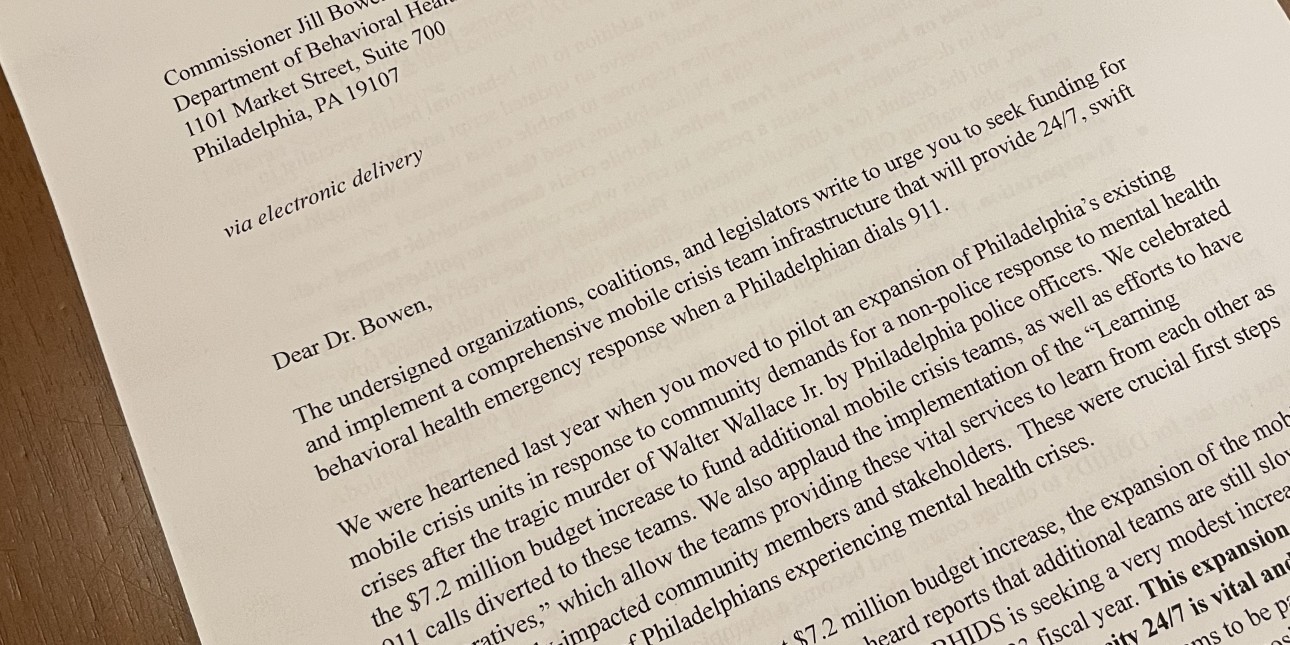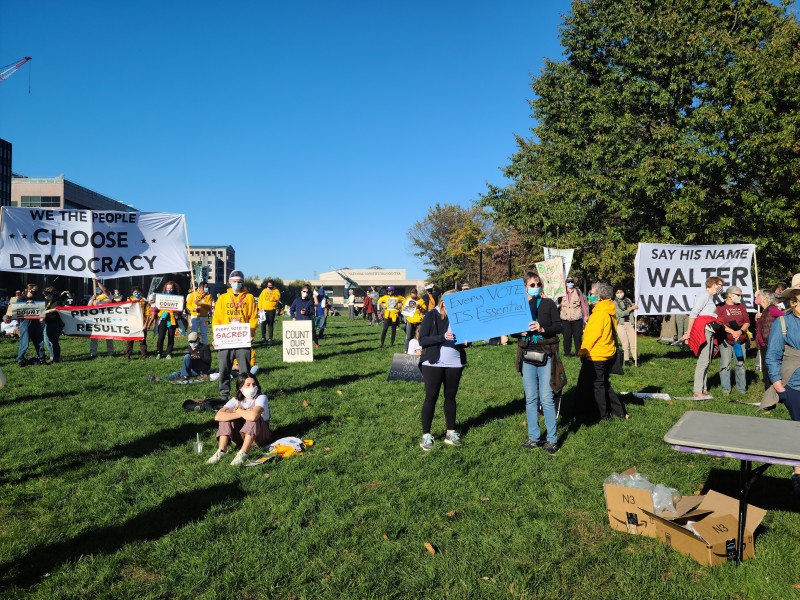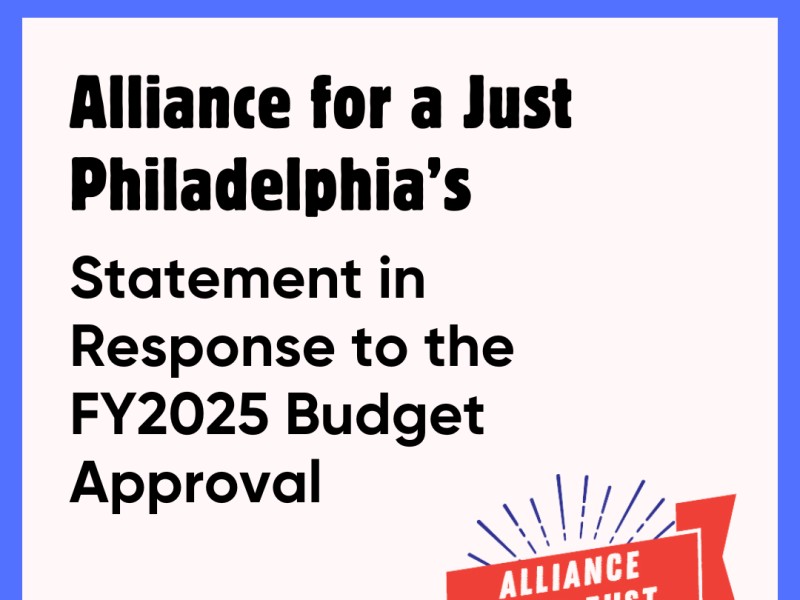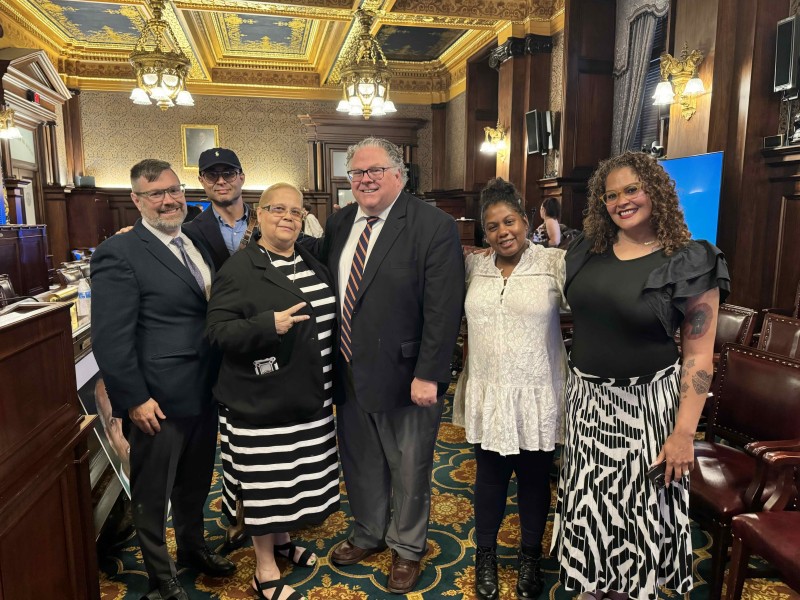Organizations and Elected Officials Call for Mobile Crisis Expansion

We deserve trauma informed services and alternatives to policing which so often harms and traumatizes members of our communities. In advance of our March 15th rally calling for citywide, round the clock non-police responses to mental health emergencies in Philadelphia, over 25 organizations and elected officials issued a letter calling on Commissioner Jill Bowen of Department of Behavioral Health and Intellectual disAbility Services.
Last summer Amistad Law Project and the Treatment Not Trauma coalition won a groundbreaking concession from the city–a 7.2 million dollar allocation to the Department of Behavioral Health and Intellectual disAbility Services (DBHIDS) for a mobile crisis team pilot program. However, this pilot program is limited to a handful of teams and does not operate 24/7 or in all areas of the city. City departments do not receive funding if they do not ask for it. Read the letter below where we call on Dr. Jill Bowen to ask for funding in this years city budget to fully expand mobile crisis teams so they are available for mental health emergencies in all parts of the city 24/7.
Commissioner Jill Bowen
Department of Behavioral Health and Intellectual Disability Services
1101 Market Street, Suite 700
Philadelphia, PA 19107
via electronic delivery
March 15, 2022
Dear Dr. Bowen,
The undersigned organizations, coalitions, and legislators write to urge you to seek funding for and implement a comprehensive mobile crisis team infrastructure that will provide 24/7, swift behavioral health emergency response when a Philadelphian dials 911.
We were heartened last year when you moved to pilot an expansion of Philadelphia’s existing mobile crisis units in response to community demands for a non-police response to mental health crises after the tragic murder of Walter Wallace Jr. by Philadelphia police officers. We celebrated the $7.2 million budget increase to fund additional mobile crisis teams, as well as efforts to have 911 calls diverted to these teams. We also applaud the implementation of the “Learning Collaboratives,” which allow the teams providing these vital services to learn from each other as well as directly-impacted community members and stakeholders. These were crucial first steps to serving the needs of Philadelphians experiencing mental health crises.
Even though DBHIDS received that $7.2 million budget increase, the expansion of the mobile crisis units has not yet happened. We have heard reports that additional teams are still slowly being staffed and trained. We also learned that DBHIDS is seeking a very modest increase in funding for the mobile crisis units expansion for the 2023 fiscal year. This expansion, and further, a fully funded program that will operate across the city 24/7 is vital and needs additional funding. We believe that increased funding would allow teams to be paid higher salaries so that these jobs are competitive and sustainable, and would lead to positions being filled faster.
While the mobile crisis units expansion is languishing, Crisis Intervention Response Teams, or CIRT continues to move forward. We know that non-police responders do a better job of handling mental health crises than do police or teams of police and mental health professionals, and is the preferred standard of care. We need DBHIDS to prioritize mobile crisis expansion and ask for the funding to adequately provide this resource to Philadelphians.
At a minimum, mobile crisis expansion should include the following:
- 24/7 access. We advocate for a 24/7 model, meaning that mobile crisis teams would be available day and night, like the expected 24/7 response from police, fire, and medical teams.
- Dispatched via 911. We believe that in addition to the behavioral health specialist in the 911 radio room, dispatchers should receive an updated script and more training to direct calls that do not require a police response to mobile crisis teams. We should not wait for the implementation of 988–Philadelphians need this now.
- Emphasis on being separate from police. Mobile crisis teams should be trained well enough in de-escalation to assist a person in crisis where calling the police is a last resort, not the default for a difficult situation. This should be true even of the vendors that are also staffing CIRT. Teams should be culturally competent to understand how Black and brown communities in particular can perceive police presence as a threat, not therapeutic.
- Transportation. If the crisis situation requires transport to inpatient or outpatient care, measures for a warm handoff should be in place and the person in crisis must be transported safely and with dignity–not in the back of a police vehicle.
In order to accomplish those goals, Philadelphia will need far more than the four teams of the pilot program. We urge you to consult with national partners such as Crisis Now, which have developed tools to estimate the behavioral health crisis needs of jurisdictions around the country, in order to determine how to expand the program further in order to meet the needs of our city.
It is not too late for DBHIDS to change course and become a champion for Philadelphians who experience mental health crises and for Philadelphia to become a national leader for what robust mobile crisis response can look like. We look forward to continued collaboration towards making our city a safer place.
Sincerely,
Philadelphia Treatment Not Trauma Coalition
Amistad Law Project
POWER Live Free
Action Center on Race & the Economy (ACRE)
Lutheran Settlement House
VietLead
Juntos
Rep. Rick Krajewski
Councilmember Kendra Brooks
Councilmember Jamie Gauthier
Councilmember Helen Gym
Community Legal Services of Philadelphia
African American Roundtable (Milwaukee)
Marijuana Justice - Virginia
Communities United for Restorative Youth Justice (Oakland)
Abortion Liberation Fund of PA
Abolitionist Law Center
Black & Latinx Community Control of Health
ACT UP
Movement Alliance Project
People’s Paper Co-op
Philadelphia Reentry Think Tank
Black Lives Matter Philly
Village of Arts & Humanities
Why Not Prosper
White Anti-Racist Social Work Action Group


